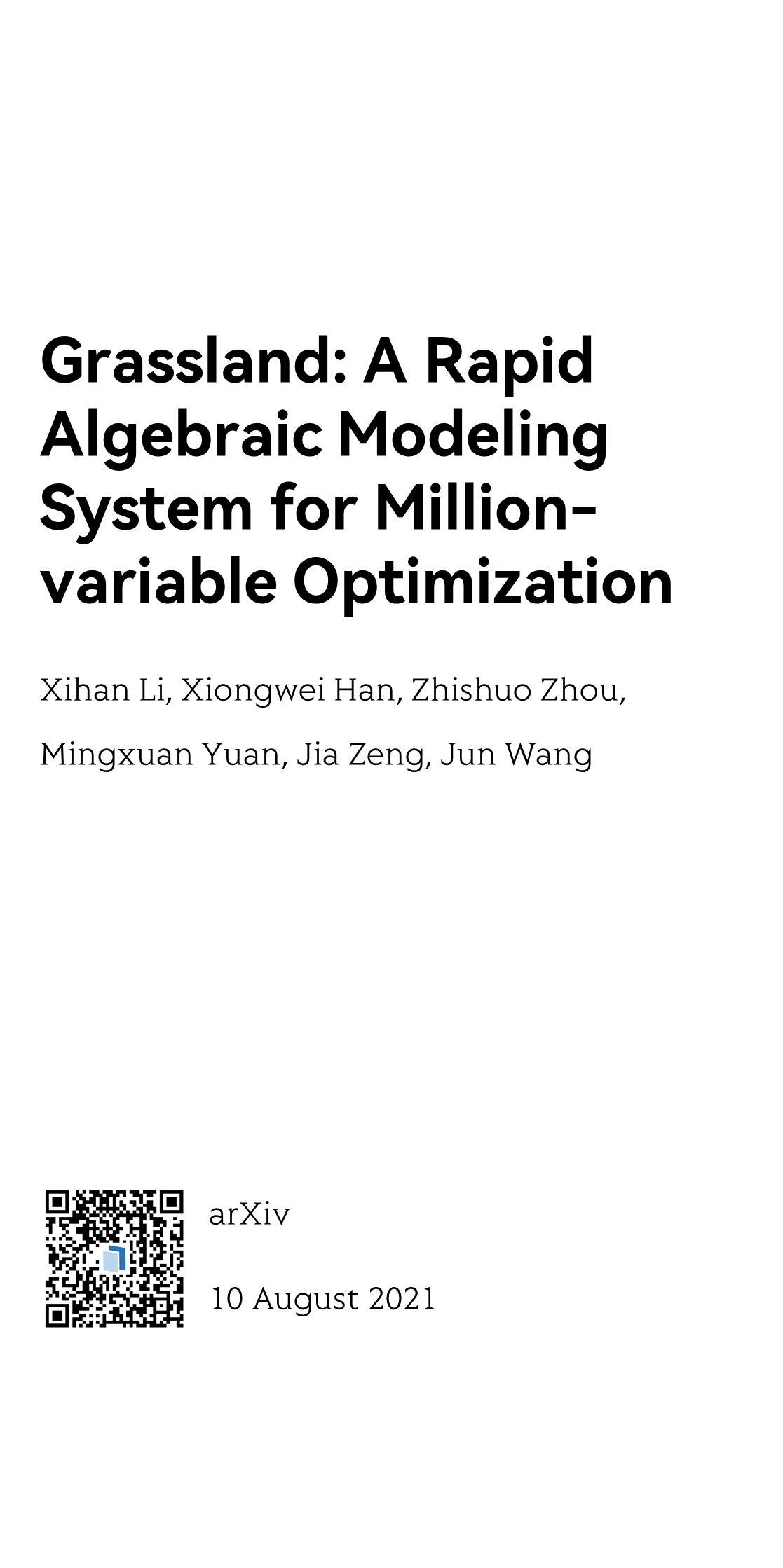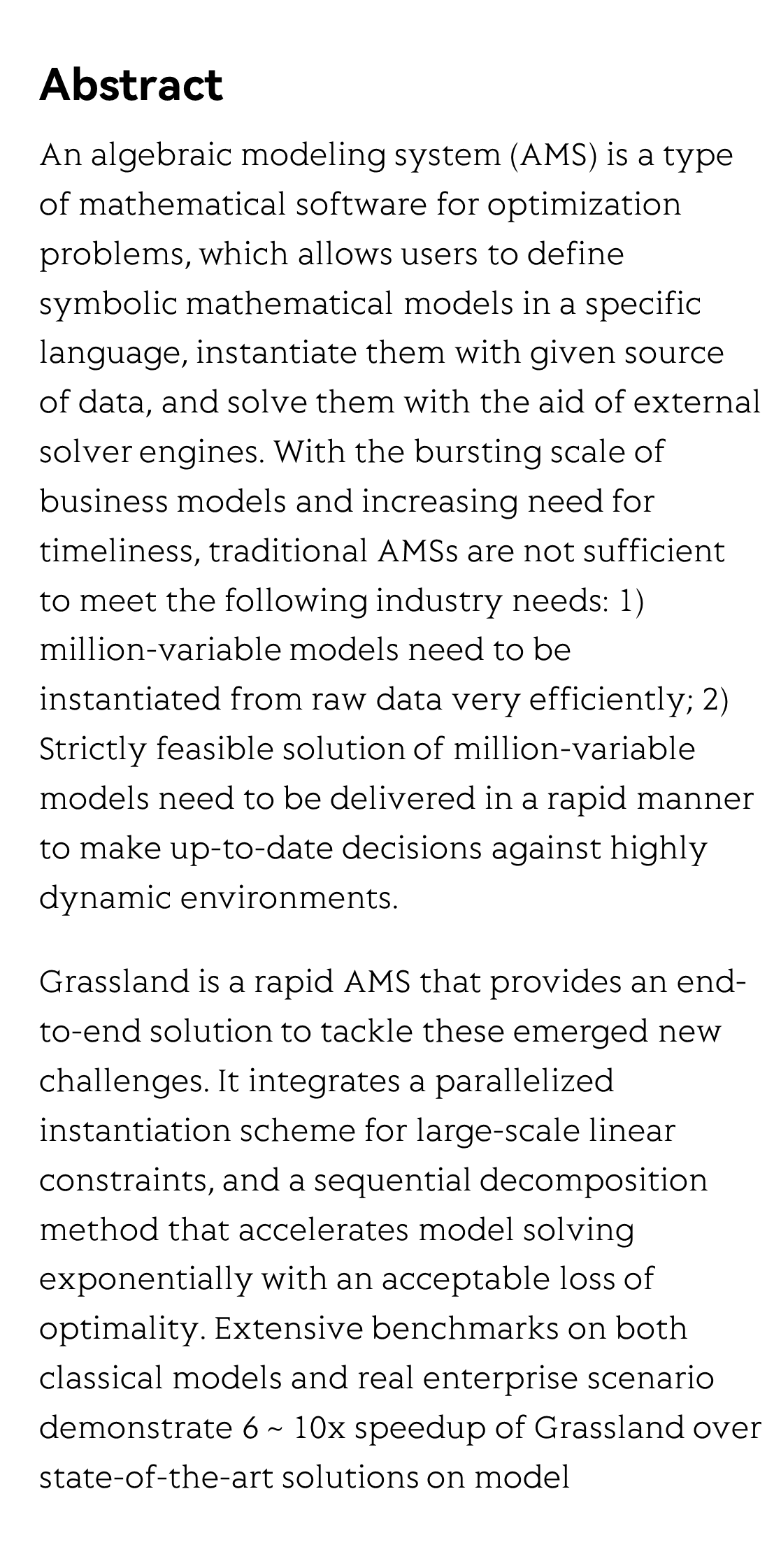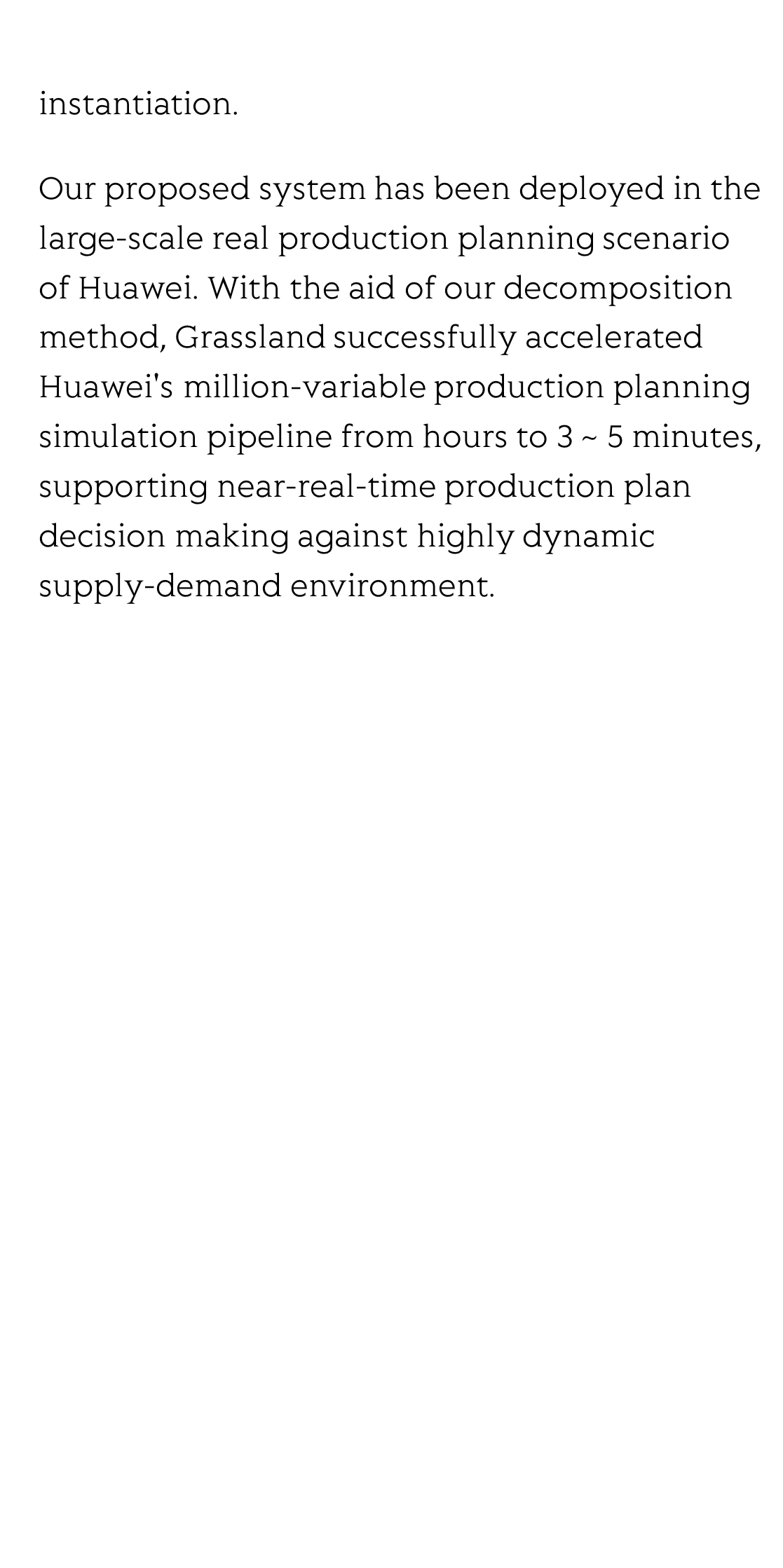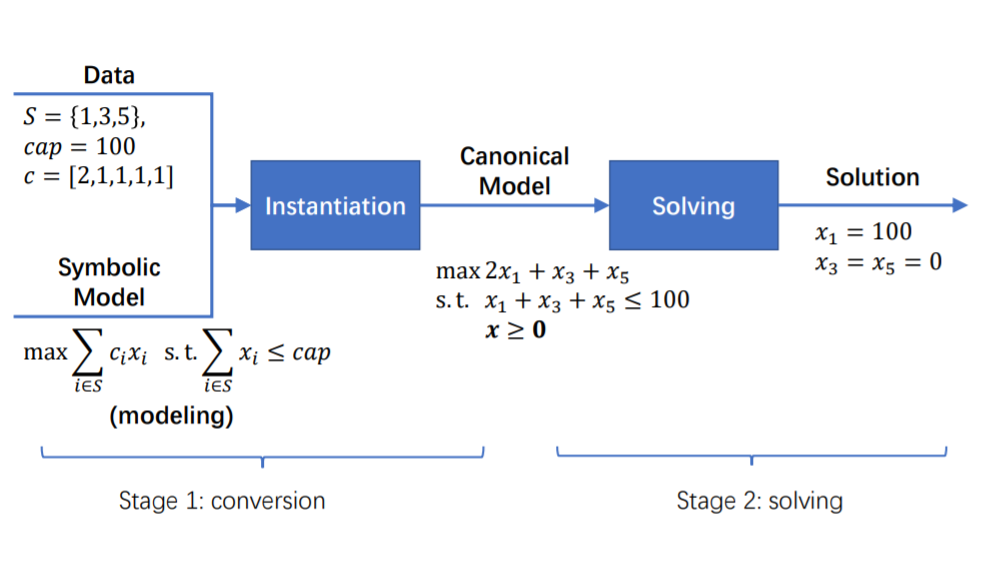(Preprint) Grassland: A Rapid Algebraic Modeling System for Million-variable Optimization
Xihan Li ¹, Xiongwei Han 韩雄威 ², Zhishuo Zhou ³, Mingxuan Yuan ², Jia Zeng ², Jun Wang ¹
¹ University College London, The United Kingdom
² Huawei Noah's Ark Lab 华为 诺亚方舟实验室
³ Fudan University 复旦大学
arXiv, 2021-08-10
Abstract
An algebraic modeling system (AMS) is a type of mathematical software for optimization problems, which allows users to define symbolic mathematical models in a specific language, instantiate them with given source of data, and solve them with the aid of external solver engines. With the bursting scale of business models and increasing need for timeliness, traditional AMSs are not sufficient to meet the following industry needs: 1) million-variable models need to be instantiated from raw data very efficiently; 2) Strictly feasible solution of million-variable models need to be delivered in a rapid manner to make up-to-date decisions against highly dynamic environments.
Grassland is a rapid AMS that provides an end-to-end solution to tackle these emerged new challenges. It integrates a parallelized instantiation scheme for large-scale linear constraints, and a sequential decomposition method that accelerates model solving exponentially with an acceptable loss of optimality. Extensive benchmarks on both classical models and real enterprise scenario demonstrate 6 ~ 10x speedup of Grassland over state-of-the-art solutions on model instantiation.
Our proposed system has been deployed in the large-scale real production planning scenario of Huawei. With the aid of our decomposition method, Grassland successfully accelerated Huawei's million-variable production planning simulation pipeline from hours to 3 ~ 5 minutes, supporting near-real-time production plan decision making against highly dynamic supply-demand environment.
Separation and identification of mixed signal for distributed acoustic sensor using deep learning
Huaxin Gu, Jingming Zhang, Xingwei Chen, Feihong Yu, Deyu Xu, Shuaiqi Liu, Weihao Lin, Xiaobing Shi, Zixing Huang, Xiongji Yang, Qingchang Hu, Liyang Shao
Opto-Electronic Advances
2025-11-25
A review on optical torques: from engineered light fields to objects
Tao He, Jingyao Zhang, Din Ping Tsai, Junxiao Zhou, Haiyang Huang, Weicheng Yi, Zeyong Wei Yan Zu, Qinghua Song, Zhanshan Wang, Cheng-Wei Qiu, Yuzhi Shi, Xinbin Cheng
Opto-Electronic Science
2025-11-25







